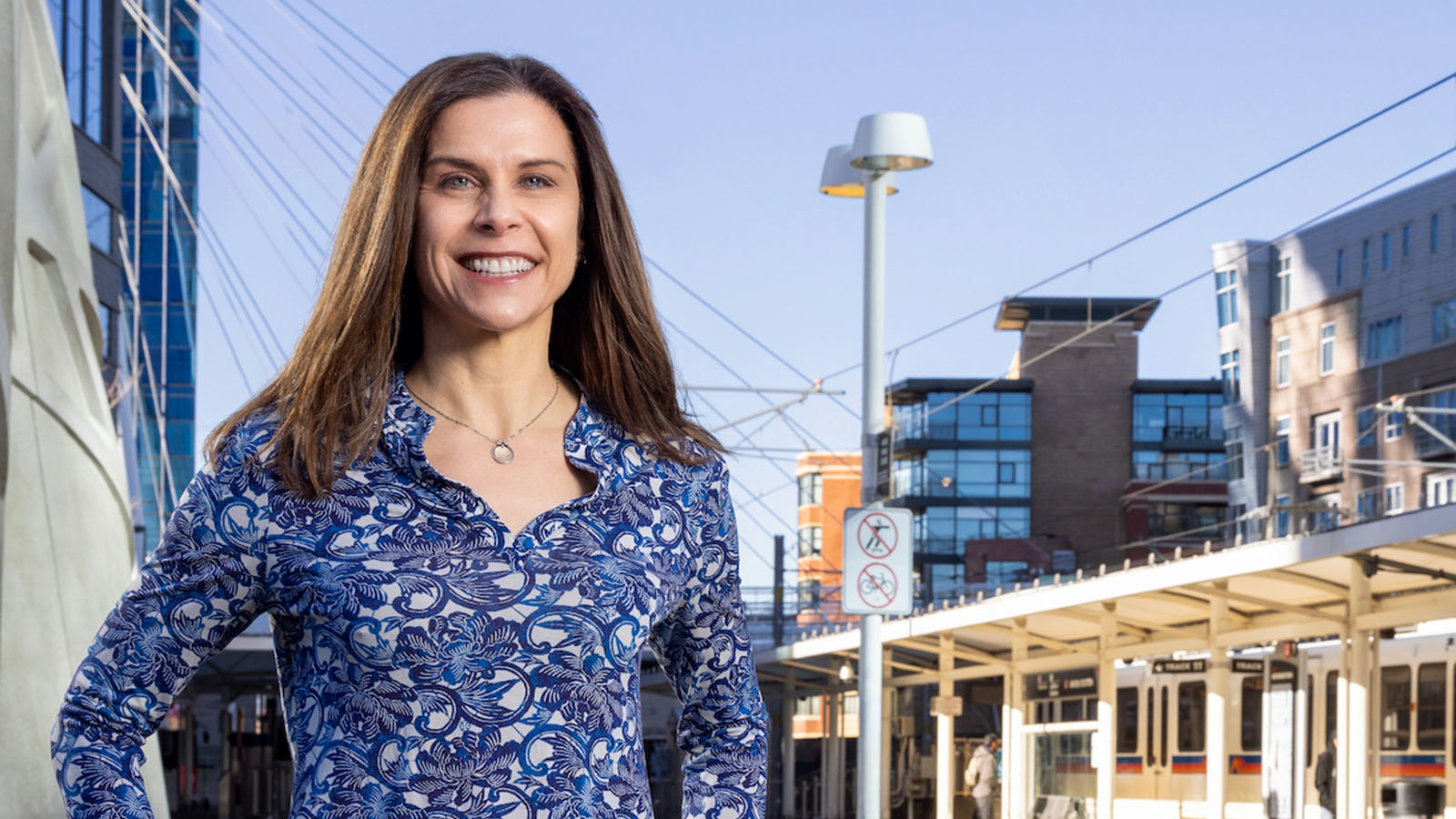In preparation for the 2020 Conscious Cities Festival Denver event, Shaping Health, Conscious Denver will be featuring the work of our event speakers to share how they are impacting change in Denver and beyond. In this segment, we are excited to introduce Carrie Makarewicz, PhD and Associate Professor of Urban Planning at the University of Colorado Denver and change agent for transportation equity.
Carrie’s research examines transportation equity in neighborhoods and cities as greater transportation options are linked to increased social interactions and improved economic well-being, mental health and quality of life. According to Carrie, there are two important factors that require improvement: increased options for travel and the way research is conducted informing those options. Often processes for gathering data on travel needs ignore large swaths of the population or do not gather enough to truly understand their needs spatially and temporally.
When asked how Denver is doing a good job of shaping health, Carrie shared that Denver recently created the Department of Transportation and Infrastructure with a focus on mobility and safety along with innovative ways to reduce vehicle usage by getting people out of their cars. A reduction in cars on the road would lead to lower pollution levels, reducing asthma and other common health impacts of pollution. It would also make streets safer for walking, biking, and accessing transit. In the Globeville neighborhood of Denver, a previously underserved transit zone, RTD (Regional Transportation District) provides a van and operating funds that the neighborhood utilizes as a local shuttle for residents to access work, school, medical appointments, and other neighborhood destinations not served by RTD’s fixed route transit. Similar on-demand micro-transit systems employed throughout the Denver metro area could provide more localized mobility services, creating community through social interaction and increasing access throughout neighborhoods. These on-demand shuttles also provide jobs for local drivers and could support community ownership or planning cooperatives.
And with respect to where Denver can improve, Carrie discussed the need for more affordable housing. Denver could benefit from more park space incorporating input from residents about usage and needs. Philadelphia is one city Carrie pointed to as an example city that has created small pockets of play space for outdoor games and toys on otherwise inactive patches of concrete and grass. Minneapolis eliminated single-family zoning in a long term effort to increase housing density and access to public transportation. Chicago is another example of a city from which Denver can learn. Chicago was conscientious with regards to the influx of electric scooters, requiring companies to place scooters in neighborhoods with lower incomes and to maintain that access by returning the scooters to those neighborhoods at the end of each day. Ideally, the scooter companies would balance them throughout the day if the scooters are leaving the neighborhoods but are not being returned. These forward-thinking shifts, both big and small, could serve as models to help Denver transform into a healthier city.
In addition to her work as a change agent for transportation equity, Carrie co-chairs the American Planning Association’s Public Schools Interest Group, a national organization of planning researchers and practitioners who are involved with public schools in order to strengthen the connection between public schools and their cities, which in turn will create stronger neighborhoods and healthier communities. Carrie believes that public schools can serve as communal hubs for social interaction, recreation, access to medical care and health education, adult learning opportunities, and increased economic benefits for families by allowing regular work hours for parents. Carrie’s work towards improving public schools and increased transportation equity contributes to shaping the health of this city.
Denver is in the process of learning, adapting and evolving as a result of COVID-19. For example, Denver has closed several streets during the pandemic to make outdoor spaces more accessible. Long-term, the city would benefit from increased parks and playgrounds, wider sidewalks, and protected bike lanes. In addition to improving outdoor access, Carrie advocates for policy shifts that would allow an increase in ADU (Accessory Dwelling Unit) construction. These separate housing units on existing property allow for wealth building, housing affordability, aging in place, and in the time of COVID-19, a safe place to quarantine.
Join Carrie on October 22, 2020 to learn more about how she and others are Shaping Health in Denver!
Photo Credit: CU Denver College of Architecture and Planning



